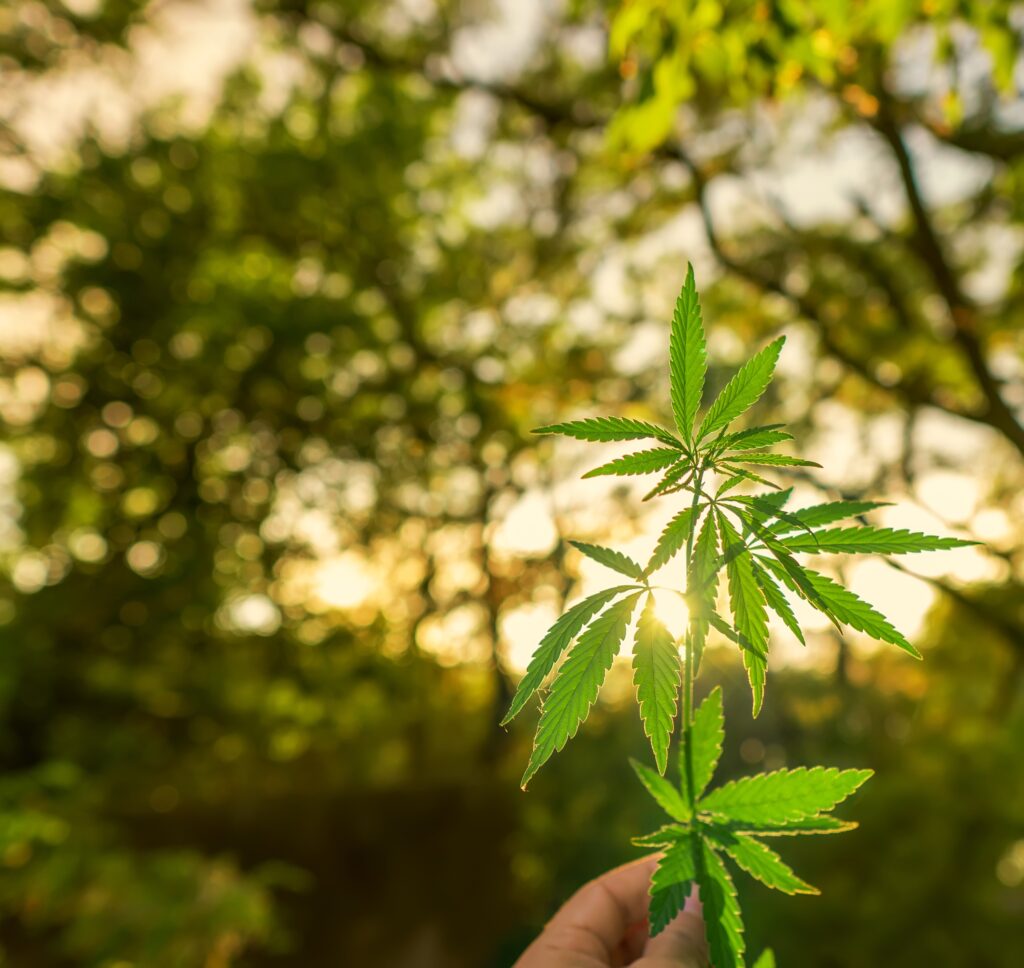
The immune system is your body’s natural defense against the everyday threats of the outside world. It is composed of lymph nodes, vessels, phagocytes, natural killer cells, antigens, and lymphocytes that work tirelessly to keep you safe and healthy.
Your body has two kinds of defenses — innate (nonspecific) defenses, which are present at birth, and adaptive (specific) defenses. Innate defenses protect you from pathogens and include mechanical barriers, such as your skin. If pathogens penetrate your skin, your immune system rapidly engages your second line of defense: inflammation.
Adaptive immunity develops throughout your lifetime. As you encounter different bacteria and viruses, your immune system begins to memorize these foreign particles to quickly ward them off before an infection starts. It is composed of B and T lymphocytes, as well as antigen-presenting cells.
Clearly, the immune system is a beautifully complex arrangement of biological processes designed to keep your body in tip-top shape. But what happens when something goes wrong?
In a perfect world, your immune system is supposed to distinguish your cells from foreign antigens. With this ability, the soldiers of the immune system know not to attack your body and instead only target potential threats.
However, in the case of autoimmunity, the immune system loses this ability and instead begins to attack your own body. This is the case for approximately five percent of adults in the United States. Rheumatoid arthritis, lupus, multiple sclerosis, type 1 diabetes, Grave’s disease, and Celiac’s disease are all examples of autoimmune conditions.
Right now, suppressing the immune system through corticosteroids and other drugs is the primary treatment option for autoimmune conditions. These medications reduce inflammation and help cull the overactive immune system. Dietary changes are also often recommended to include more anti-inflammatory foods, spices, and herbs.
But what if these weren’t your only options? What if there was another way to naturally reduce inflammation and suppress your immune response? Is there research on how CBD and THC impact the immune system?
Cannabis and the Endocannabinoid System
Before diving into cannabinoids and the immune system, let’s briefly recap the endocannabinoid system. There are two types of endocannabinoid system receptors — CB1 and CB2.
CB1 receptors primarily reside within the central nervous system, whereas CB2 receptors are mainly distributed throughout your peripheral organs. Namely, CB2 receptors are found throughout immune cells and the lymphoid organs.
CB2 receptors are located in the thymus, tonsils, B cells, T cells, macrophages, monocytes, and natural killer (NK) cells of the immune system. B cells have more CB2 receptors than all other immune cells.
Despite its name, the endocannabinoid system is active regardless of cannabis use. CB1 and CB2 receptors are involved in an array of biological responses, including pain, anxiety, inflammation, neuroplasticity, neuroinflammation, metabolism, bone growth, and immune response.
Although cannabinoids are primarily associated with the cannabis plant, all mammals naturally produce cannabinoids, too. These cannabinoids produced by the body are known as endocannabinoids. Cannabinoids produced by cannabis plants are phytocannabinoids.
Just like CB1 and CB2 receptors, your body produces endocannabinoids whether you’ve ever touched a spliff or not. Anandamide and 2-AG are the two most studied and well-known endocannabinoids. Once synthesized by your body, anandamide and 2-AG bind to CB1 and CB2 receptors to help maintain homeostasis.
Anandamide appears to regulate inflammatory responses throughout your body by inhibiting pro-inflammatory mediators and enhancing anti-inflammatory mediators. This endocannabinoid also appears to enhance the phagocytic abilities of neutrophils — which in Layman’s terms, means that anandamide helps neutrophils engulf and destroy pathogens and debris before they can harm your body.
Anandamide also plays an important role in regulating your adaptive immune responses. Specifically, anandamide seems to block T-cells from rapidly multiplying, and it appears to block the release of pro-inflammatory cytokines.
The effects of 2-AG on the immune system are not as clear and are certainly understudied. However, the research thus far suggests that 2-AG also plays a role in regulating inflammation, but through other mechanisms.
Cannabis Suppresses Immune Function

Now that we understand the endocannabinoid system’s role in regulating immunity, let’s talk about how phytocannabinoids affect immune function. According to a study by Rieder et al., there are four main ways in which phytocannabinoids exert their immunosuppressive properties:
- Induction of apoptosis: Phytocannabinoids induce cell death (apoptosis), which rids the body of damaged and potentially harmful cells. This is crucial for preventing the development of malignant/tumor cells.
- Inhibition of cell proliferation: Simply put, cell proliferation is the creation of new cells from growth and division. As a cell grows, it divides into two daughter cells. As cells divide, there is always a chance that something can go wrong, creating a mutated, malignant cell, which will continue to create more malignant cells. Phytocannabinoids can inhibit cell growth and division. This ability could also prevent immune cells from rapidly dividing and continuing their attack.
- Inhibition of cytokines and chemokines: Cytokines are small proteins that serve as chemical messengers throughout the immune system. For example, they help tell immune cells where to attack and cause inflammation. Chemokines are a type of cytokine that promotes cell migration.
- Induction of regulatory T cells: Regulatory T cells do essentially what their name implies: they help regulate the immune system by suppressing other immune cells.
Altogether, these functions inhibit inflammation, rebalance the natural cycle of cell death and birth, and overall suppress the immune response. In the case of an overactive immune system, these suppressive abilities could theoretically bring you back to “baseline” functioning.
However, as is the case with any immunosuppressant substance, it could make you more susceptible to infections. Studies have also shown that phytocannabinoids decrease the antibodies B cells produce.
Bear in mind that B cells can produce 10 million to 1 billion different antibodies to target specific antigens. Furthermore, B cells secrete approximately 2,000 molecules every second.
Most studies on phytocannabinoids and immune suppression have mainly focused on THC, which makes sense. Although CBD and other non-psychoactive cannabinoids don’t directly bind to CB1 and CB2 receptors, THC does. Thus, much of the focus on figuring out the role of activated CB2 receptors in the immune system has entailed studies using THC.
But CBD appears to have immunoregulatory effects, as well. Like THC, anandamide, and 2-AG, CBD is immunosuppressant. CBD also suppresses pro-inflammatory cytokines, such as TNF-α, IFN-γ, and IL-1α.
“IL-1α is a pro-inflammatory cytokine produced by many cell types, predominantly innate [immune] cells,” a study in the Cannabis and Cannabinoid Research Journal explains. “Many studies have shown that circulating IL-1α levels are readily inhibited by CBD in inflammatory models, including diabetes, asthma, pancreatitis, and hepatitis.”
Impacts of Cannabis on Inflammation
The anti-inflammatory properties of phytocannabinoids have long since been studied and acknowledged throughout scientific literature. Many of the potential benefits associated with cannabis boil down to the anti-inflammatory compounds found in the plant.
When you think of “inflammation,” you probably don’t regard it as a good thing. But believe it or not, inflammation is one of your body’s most important defenses. It is one of the innate responses you’re born with. Swelling, redness, heat, and pain are how your body initially reacts to injury and infection.
The mast cells of the immune system trigger an inflammatory response by releasing histamine, serotonin, and heparin. This defends your body from pathogens and debris. It also kicks on the adaptive immune system and prepares your body to begin healing the damaged tissue.
The redness from inflammation is due to vasodilation, which allows more blood (and therefore more lymphocytes and antibodies) to quickly reach the area and respond.
But inflammation can wreak havoc on your well-being when it goes into overdrive. Chronic inflammation is a hallmark of chronic health disorders, including autoimmune diseases.
As mentioned previously, THC and CBD act throughout the immune system to inhibit pro-inflammatory signaling molecules (cytokines) and enhance anti-inflammatory signals throughout the body.
Types of Cannabis Products Impacting Your Immune System
Any cannabis product — whether it’s flower, concentrate, oil, or edibles — will affect your immune system. That is, so long as it contains either THC or CBD. It’s possible that CBN or CBC may have immunoregulatory effects, however, these have not yet been studied.
Whether you’re wondering about edibles and the immune system or any other type of cannabis product, the THC will still bind to your CB2 receptors. While CBD may not bind to your endocannabinoid receptors, it still works its way throughout other parts of your body.
Key Takeaways: Cannabis Has Immunosuppressant Properties

The immune system is a wonderfully complex array of biological functions designed to protect you from the countless harms we encounter on a daily basis. However, due to its complexity, it’s not surprising that sometimes things can go a bit haywire.
Roughly five percent of the adult population nationwide suffers from autoimmune disorders. These disorders occur when the immune system loses its ability to distinguish your body’s cells from foreign invaders and goes into overdrive.
Over the last several decades, research has demonstrated that cannabis compounds, such as THC and CBD, have immunosuppressant properties. Specifically, phytocannabinoids seem to regulate inflammation by inhibiting pro-inflammatory cells and enhancing anti-inflammatory mechanisms.
This area of study holds immense potential for the millions of individuals around the world who struggle with type 1 diabetes, multiple sclerosis, rheumatoid arthritis, lupus, and inflammatory bowel diseases — all of which, are autoimmune disorders.
References
- Moini, J. (2019). Anatomy and Physiology for Health Professionals (3rd ed.). Jones & Bartlett Learning.
- Cabral, G. A., & Griffin-Thomas, L. (2009). Emerging role of the cannabinoid receptor CB2in immune regulation: therapeutic prospects for neuroinflammation. Expert Reviews in Molecular Medicine, 11. https://doi.org/10.1017/s1462399409000957
- Silver, R. J. (2019). The Endocannabinoid System of Animals. Animals, 9(9), 686. https://doi.org/10.3390/ani9090686
- Chiurchiù, V. (2016). Endocannabinoids and Immunity. Cannabis and Cannabinoid Research, 1(1), 59–66. https://doi.org/10.1089/can.2016.0002
- British Society for Immunology. (n.d.). Regulatory T Cells (Tregs). https://www.immunology.org/public-information/bitesized-immunology/cells/regulatory-t-cells-tregs
- Rieder, S. A., Chauhan, A., Singh, U., Nagarkatti, M., & Nagarkatti, P. (2010). Cannabinoid-induced apoptosis in immune cells as a pathway to immunosuppression. Immunobiology, 215(8), 598–605. https://doi.org/10.1016/j.imbio.2009.04.001
- Nichols, J. M., & Kaplan, B. L. (2020). Immune Responses Regulated by Cannabidiol. Cannabis and Cannabinoid Research, 5(1), 12–31. https://doi.org/10.1089/can.2018.0073
- Think About Cannabis. (2022, April 4). The Science & Mystery Behind CBD. https://thinkaboutcannabis.com/cannabis-science/the-science-mystery-behind-cbd